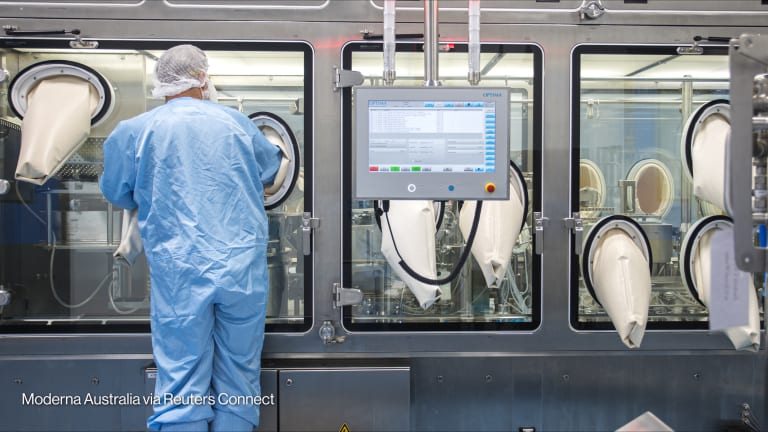CEPI CEO: Concerted effort needed to build LMIC vaccine manufacturing

Building vaccine manufacturing capacity in low- and middle-income countries has come under the spotlight with supply shortages and the lack of equitable distribution of the available COVID-19 vaccines.
Sign up for Devex CheckUp
The must-read weekly newsletter for exclusive global health news and insider insights.
The Coalition for Epidemic Preparedness Innovations, along with other partners, established the COVAX manufacturing task force to identify and resolve issues impeding equitable access to vaccines through COVAX and to support the establishment or upgrading of vaccine manufacturing facilities in LMICs in the medium to long term.
Speaking at a Devex event on the sidelines of the 74th World Health Assembly, Dr. Richard Hatchett, CEO at CEPI, said ultimately there is a need for more equitably distributed vaccine manufacturing capacity — but that it will take not only a concerted effort to create it, but also potentially years.
“We will need the financing institutions, we will need the local and regional political will and of course we can bring a great deal of technical capability and our contacts with our industry partners to the table,” he said. “It's going to take all of these sectors working together for this to succeed.”
Why it matters: Currently COVID-19 vaccine supply capacity is concentrated in regions such as East Asia, Europe, and North America. The rest of the world combined has produced less than half a million doses.
What’s next: Though Hatchett warned that it would take time to build capacity in LMICs — and that it is important to first deal with the immediate problem of securing COVID-19 doses for global distribution — he said the COVAX manufacturing task force is in the process of identifying countries interested in building their manufacturing capacity as well as partners who are interested in transferring technology.
The African Union has identified three countries for the priority list: Senegal, Rwanda, and South Africa.

Search for articles
Most Read
- 1
- 2
- 3
- 4
- 5








